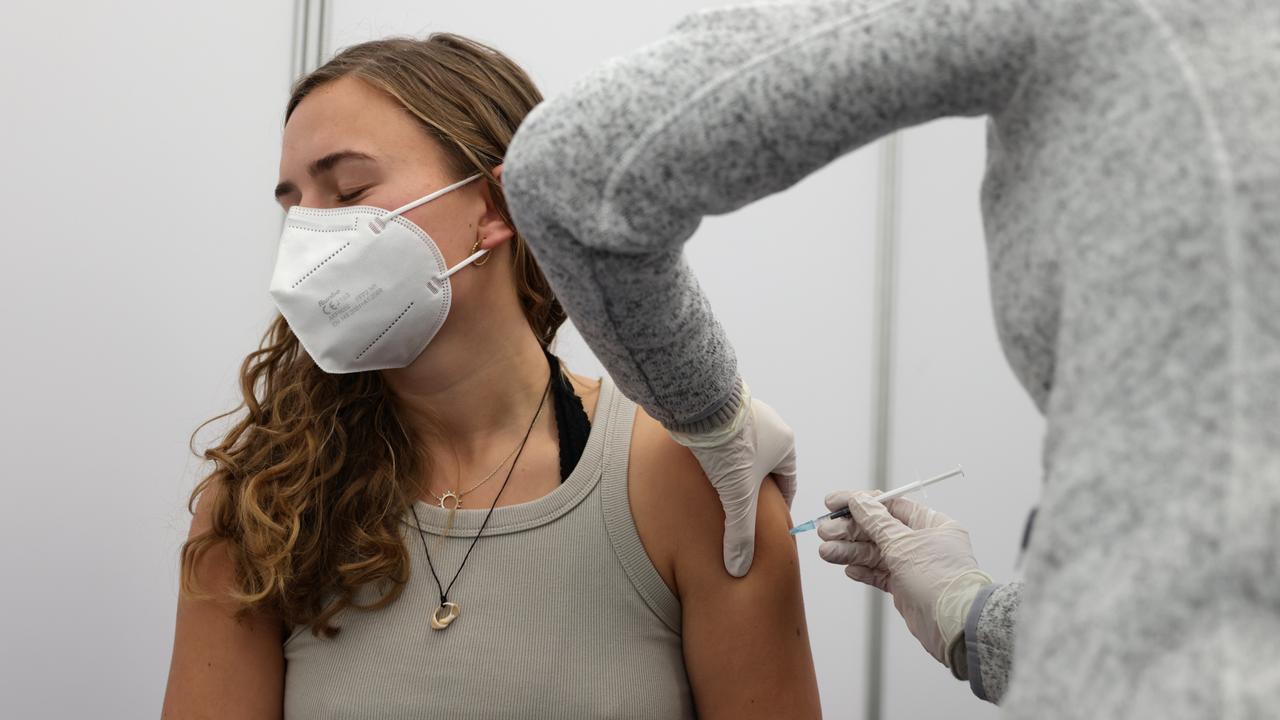Covid-19 cases tipped to rise over winter with arrival of new variants BA.4 and BA.5
Two “more transmissible” variants of Covid-19 have touched down in Australia in time for winter, as health experts warn of soaring case numbers.

If you’re wondering why Covid has been particularly efficient at striking down your friends and family in recent weeks, it’s likely they’ve fallen foul of yet another new - two - Omicron subvariants.
Named BA.4 and BA.5, both strains were first identified in South Africa earlier this year, and have since spread around the globe like wildfire.
They are more infectious than the previously dominant Omicron BA.2.12.1 and BA.2 variants and made up 13 per cent of new cases in the US alone last week – up from 7.5 per cent of cases the week before.
Experts have predicted BA.4 and BA.5 will become the dominant strains in Australia this winter, and believe both have already made a sizeable contribution to daily case numbers.
“Infection from earlier subvariants does give some protection from an infection with these later variants but reinfection is still possible,” Professor Catherine Bennett, Deakin University chair in epidemiology, told The Daily Telegraph.
“[They’re] just that little bit more transmissible again than previous Omicron subvariants and that’s helping keep our numbers up.
“It’s made this a longer wave.”
Despite the higher rate of infection, early signs show neither BA.4 nor BA.5 cause more severe disease than previous Omicron variants.
So far, more than seven million Australians have had some form of Covid-19.
However, Prof Bennett noted that real case numbers could be as much as double the official figures.
“If every new infection was in a new person, and ignoring repeat infections, then more than one-quarter of the population would have experienced an infection,” she said.
“Given how many cases are missed – no symptoms, not tested, tested but had a false negative, or tested positive on a RAT but didn’t report it – at least half the population is likely to have been infected at least once.”
Prof Bennett echoed calls by other experts for Aussies to prioritise their third vaccine shot, limit time in crowded spaces, wear masks indoors and practise good hygiene.

Professor Peter Richmond, head of the vaccine trials group at Telethon Kids Institute, further reiterated the importance of getting a booster, and warned infection rates were likely to increase over the winter.
“Having a third dose of the vaccine is the best way to protect you, but if you only had two doses more than six months ago, you have very little protection now,” he said.
The virus is widely tipped to become seasonal, with multiple federally funded studies taking place examining the most effective strategies to roll out booster vaccines.
More Coverage
This could be good news for immunity in the long term.
“[Covid] looks now to be ongoing, with Omicron helping itself to remain the dominant variant by boosting our immunity to other variants, while still being capable of causing repeat infections itself,” Prof Bennett said.
However, she warned that there may be a trend towards cases “[rising] again in winter when immunity has dropped … and transmission is more efficient as we move indoors”.






